-
Calling Hamilton City Council to call for an immediate and permanent ceasefireIn this present moment, the world is witnessing the merciless genocide of Palestinian people by the state of Israel. It is estimated that over 20,000 Palestinian’s have been martyred, thousands are trapped beneath rubble, and millions have been displaced (2). There is an utmost urgency for us to stand in solidarity with Palestine, rather than “neutrality”, as they suffer under blatant breaches of international humanitarian law. “Silence the guns and return to dialogue – the suffering inflicted on civilians is too much to bear” - UN Human Rights Chief Volker Türk, 03/12/23 (3) References: 1. https://www.stuff.co.nz/waikato-times/news/300543010/civic-service-in-hamilton-to-stand-with-ukraine 2.https://www.aljazeera.com/news/liveblog/2023/12/4/israel-gaza-war-live-israel-expands-ground-attack-in-southern-gaza?update=2532359 3. https://www.ohchr.org/en/press-releases/2023/12/gaza-unbearable-suffering-civilians-demands-end-violence-turk517 of 600 SignaturesCreated by Eilidh Huggan
-
MĀORI CALL FOR PALESTINEWe're asking for Tangata whenua to sign the petition with your name, Iwi affiliations and occupation (optional). This petition will: - Spread awareness of the genocide. - Demonstrate that as iwi members, people and a united collective, we are in total opposition to genocide, apartheid and systemic colonisation of all indigenous peoples. - Put pressure on our government to represent our values internationally. For many of us, the effects of the genocide in Gaza are more acute. We grew up hearing stories, singing mōteatea, and listening to our people recall the ways they experienced harm as a result of colonisation. This intergenerational trauma is still a big part of our lives. As Māori, we are often praised by other indigenous communities as leaders in the fight to decolonise. Our relationship with colonialism is fraught, but we also hold a unique position globally. Now is the time for us to call on our partners of Te Tiriti o Waitangi to use their power to create change and end the harm of innocent civilians in Gaza, the West Bank, and throughout Palestine.9,372 of 10,000 SignaturesCreated by MĀORI CALL FOR PALESTINE
-
Open Letter: Dear Leaders, don't criminalise our children. Stop the Ram Raid Bill!The Ram Raid bill is currently before select committee. It was introduced with the aim of reducing the impact of ram raids. The measures proposed will not achieve this aim. They are not supported by evidence, they include breaches of human rights and the UN rights of the child, and they are out of step with our international counterparts. The impact on children who commit these offenses will be immense, criminalising 12 and 13 year olds who are in desperate need of love, comprehensive support and guidance; potentially sending them further down a destructive pathway; and without delivering the intended benefits or preventing harm in our communities.2,903 of 3,000 SignaturesCreated by Aaron Hendry
-
Deny Kelly-Jay Keen-Minshull Re-Entry Into AotearoaThis request is rooted not only in the impact of her visit in March this year, but also her extensive history of hateful speech and incitement of violence. Her return to Aotearoa would pose a significant threat and risk to public order and the public interest - this holds especially true for our takatāpui, transgender and gender diverse communities. Disinformation Project Researcher Dr Sanjana Hattouwa reported that after Keen’s visit to New Zealand, the amount of vitriol towards the trans community was “to a degree we’ve never studied before ” with “extraordinarily violent” content towards trans people being distributed widely. He described the level of hate towards trans people as “genocidal”. Outside of Aotearoa, Keen-Minshull’s public statements and actions have included: - Threatening that transgender people, gender diverse people, “and anyone else who stands in [her] way” will be “annihilated” - Stating trans men should be sterilised - Calling for men to carry guns to patrol women’s bathrooms against the imagined threat of trans women - Encouraging violent outbreaks at her tours in the UK and US, with her supporters allegedly assaulting counter protestors and inflicting violence on trans people - Organising rallies attended by members of the Proud Boys - a designated terrorist group in Aotearoa - Being excluded by other groups and members of her own anti trans circles because of her racism, Islamophobia and aforementioned ties to far-right white nationalism.* As the Minister for Immigration, Mr. Little, you have the right under s.16 of the immigration act 2009 to deny a visa, entry permission or entry waiver to a person likely to be a threat or risk to public order or to the public interest. The threshold for both appears to be low, considering that it was the same section used to bar the rap group Odd Future from Aotearoa in 2014. At the time, Immigration New Zealand said in a statement that their rationale for the ban under s.16 included "incidents at past performances in which they have cited violence." In an email dated 12 February 2014, obtained by Stuff as part of the OIA, Immigration NZ wrote: "[Odd Future] clearly has a history of promoting and inciting hatred…were they permitted to travel to New Zealand and perform I believe on the basis of their track record thus far, they are likely to incite violence towards women, racial, sexist and homophobic disharmony in New Zealand". Keen-Minshull is a person who causes demonstrable risk of harm to our public. Who employs hate speech and calls for violence against some of Aotearoa’s most vulnerable citizens. Whose public events have already caused disruption to public order here and overseas. TLA believes this justifies you, Minster Little, in exercising your powers under s.16 of the Act to deny her entry to Aotearoa, and for the safety of our trans citizens and the general public interest, we call on you to do so. Yours sincerely, Trans Liberation Alliance Sources: Posie Parker to return to NZ in September: Will Border Officers Let Her In? New Zealand Herald, 2 August 2023 https://www.nzherald.co.nz/nz/posie-parker-to-return-to-new-zealand-in-september-will-border-officers-let-her-in/QMFZ42LTVNFD7DS5KAF5C6URFQ/ Green Party Aotearoa Veale J, Byrne J, Tan K, Guy S, Yee A, Nopera T & Bentham R (2019). Counting Ourselves: The health and wellbeing of trans and non-binary people in Aotearoa New Zealand. Transgender Health Research Lab, University of Waikato: Hamilton NZ. https://researchcommons.waikato.ac.nz/bitstream/handle/10289/12942/Counting%20Ourselves_Report%20Dec%2019-Online.pdf?sequence=54%26isAllowed=y Anti Trans Hate in NZ becoming 'genocidal’ - One News, Friday, 5 May 2023 https://www.1news.co.nz/2023/05/05/anti-trans-hate-in-nz-becoming-genocidal-disinformation-project/ Why we need to protest Posie Parker, Redflag, 5 March 2023 https://redflag.org.au/article/why-we-need-protest-posie-parker4,013 of 5,000 SignaturesCreated by Trans Liberation Alliance

-
Mental Health Policy Reform: An Open Letter to the GovernmentThe Mental Health Matters Initiative is a group of youth activists who have come together to fight for better mental health care in Aotearoa. We believe in the power of youth voice and experience and we are demanding the government to reform their Mental Health Policy. For years young people have been left to navigate an overworked and underfunded Mental Health System. Current and past Governments have handled the Mental Health Crisis with apathy, leaving behind a dysfunctional system. The Mental Health Matters Initiative holds a vision for what our mental health care system should look like (MHMI - Mission Statement): 1) Empathetic Providers and Leaders. We need empathetic leaders and mental health providers that work hard to ensure that every young person is able to access the care that they deserve, and understands the nuances and trials that come with every individual mental health journey. We need the Government to create policy that protects not only its patients needing care, but the workers who supply it. 2) Accessible Care. Everyone needs to be able to access the care that they need in a simple, stress-free way. We want to create viable pathways to care through policy and breaking Mental Health stigma. 3) Fair and Equitable Treatment. Access to treatment and care should be fair and equitable. Everyone should have access to the care that they deserve and that distribution of resources is fair on not only patients but workers. The current status-quo is not good enough. Experts, young people, workers, and those currently trying to navigate the system are demanding better. It is time to listen. We demand the government to implement these policies to ensure a functioning and supportive mental health system in Aotearoa.You have ignored us for too long, and this is a matter of life or death for many. Ngā Mihi, The Mental Health Matters Initiative231 of 300 SignaturesCreated by The Mental Health Matters Initiative

-
Build public housing now!All people should have a secure and healthy home to live in. A place to come back to, for quiet and rest, a place to experience joy with friends and family, a place to feel grounded in community. But people in government having a hands off approach to the economy means it is geared towards protecting private profit – treating houses as commodities, rather than homes for living. Housing affects every part of our lives. The stress of hyper-short tenancies, week-to-week emergency housing grants, and the looming threat of rental increases pricing people out of their communities has a major impact on people’s wellbeing and working lives. Public housing can provide stable and safe homes for people, yet successive governments have neglected the state housing programme, choosing to privatise and commodify houses instead of ensuring everyone has a home. [1] Real estate magnates are extracting profits while everyday people are being locked out of homes. We need a bold plan out of this crisis, not piecemeal change and band aid solutions. An ambitious and significant public housing programme is a proven way of truly addressing the issue of housing. In Aotearoa, this must happen alongside a Te Tiriti based housing system where Māori have tino rangatiratanga over housing. Government neglect of public housing impacts everyone. Forty years ago, it was possible for a family to buy a home because household income was equal to the average house price in Aotearoa. Today, families need eight times their household income to buy a house.[2] If the government takes action to prioritise public housing, it can create the conditions where housing will be more affordable for everyone. 1 in 4 renters spend 40 percent or more of their income just on rent. [3] Health care workers and teachers are being priced out of their communities. [4] If we had more public homes available to more people in more areas of Aotearoa it increases people's opportunities to lead thriving lives - teachers can walk to their local schools to educate your kids, and health care workers to our hospitals to care for your loved ones. By the government’s own criteria we have nearly 30,000 people and families waiting for homes right now. [5] But if we consider all the people and families living in unaffordable, uninhabitable and insecure housing who don’t meet the government’s criteria – the need for a build and buy programme able to house everyone becomes abundantly clear. We know from research there are 105,747 people struggling with some form of homelessness or housing deprivation.[6] There are also 346,998 people who are reliant on Accommodation Supplements because they cannot afford homes. This starts to paint a picture of a ‘true waitlist’ that could really benefit from more good quality, affordable public homes. Right now, the government spends millions of dollars a week on the accommodation supplement, and emergency housing. These mechanisms are ways the government subsidise the profits of private landlords and moteliers who can charge exorbitant prices and raise this at will. Instead of doing this, the government can choose to prioritise building and buying public homes, rather than propping up property magnates and corporate profits. Aotearoa New Zealand is falling behind when it comes to public housing, making up just 3.8% of all homes, far behind the UK at 17%; and Austria, Denmark and the Netherlands all above 20%. [8] Countries with higher public housing and more generous eligibility criteria have better housing outcomes for people and families. Public housing is infrastructure for care, connection, cohesion and contribution. We need the Government to look after all of our long-term wellbeing by building and buying more public homes to house everyone. Public Housing Futures (PHF) is a group made up of Aotearoa based researchers and organisers who believe that everyone in Aotearoa should have access to beautiful, accessible, sustainable and secure housing, and that public housing is a pathway towards this. ActionStation has teamed up with Public Housing Futures to work on this campaign. 1. Kāinga Kore: The Stage One Report of the Housing Policy and Services Kaupapa Inquiry on Māori Homelessness. Waitangi Tribunal - WAI 2750, 2023 https://forms.justice.govt.nz/search/Documents/WT/wt_DOC_197630281/Kainga%20Kore%20W.pdf 2. Generation Rent: Rethinking New Zealand’s Priorities. Eaqub and Eaqub, 2015; New Zealand house prices drop again but still out of reach for first-time buyers. Guardian, 10 May https://www.theguardian.com/world/2023/may/10/new-zealand-house-prices-drop-again-but-still-out-of-reach-for-first-time-buyers 3. Housing affordability more challenging for renters than homeowners. Stats NZ, accessed Jul 2023 https://www.stats.govt.nz/news/housing-affordability-more-challenging-for-renters-than-homeowners/#:~:text=In%20the%20year%20ended%20June,released%20by%20Stats%20NZ%20today 4. Housing costs driving teachers, aged care nurses away from cities that need them. Stuff, Aug 2021 https://www.stuff.co.nz/business/126061577/housing-costs-driving-teachers-aged-care-nurses-away-from-cities-that-need-them Public Housing Quarterly report. HUD, March 2023 https://www.hud.govt.nz/assets/Uploads/Documents/Public-Housing/HQR-Mar23-web-V2.pdf 5. Public Housing Quarterly report. HUD, March 2023 https://www.hud.govt.nz/assets/Uploads/Documents/Public-Housing/HQR-Mar23-web-V2.pdf 6. Severe housing deprivation in Aotearoa New Zealand. Amore et al., 2018 (updated Jun 2021) https://www.hud.govt.nz/assets/Uploads/Documents/Severe-Housing-Deprivation-2018-Estimate-Report.pdf 7. Over 100,000 people are in severe housing deprivation and struggling to access a home. Human Rights Commission, accessed July 2023 https://housing.hrc.co.nz/over_100_000_people_in_severe_housing_deprivation_and_struggling_to_access_a_home#:~:text=A%202022%20OECD%20report%20found,OECD%20average%20of%207%20percent3,218 of 4,000 SignaturesCreated by Public Housing Futures
-
Oppose AUKUS: For an independent, demilitarised and nuclear-free PacificAUKUS is an aggressive military pact. Security in New Zealand and the Pacific can only be ensured by centring sustainable development, Indigenous rights, and environmental protection. AUKUS makes the world more dangerous. New Zealand participation in AUKUS would deepen geopolitical tensions in the Pacific, and threaten Pacific nations’ long held policy of “friends to all and enemies to none”. AUKUS impedes climate action. Climate change remains the single greatest threat to the livelihoods, security and wellbeing of all peoples of the Pacific. The threat of climate change requires international diplomacy and cooperation, not militarism. AUKUS threatens our nuclear free legacy. Aotearoa New Zealand has a proud history of anti-nuclearism and solidarity with the Nuclear Free and Independent Pacific movement. AUKUS is not based on public consultation. It accelerates climate injustice, violates our treaties and regional commitments, and erodes regional decolonisation efforts. We urge the New Zealand government to reject any role in the AUKUS military pact and condemn the use of nuclear weapons and non-peaceful nuclear technologies in the Pacific. We urge the New Zealand government to recommit to an Independent and Pacific-led foreign policy, in accordance with Te Tiriti o Waitangi, our regional obligations, and our national identity. This petition is led by Te Kuaka. More information on MATIKA HAWAIKI campaign events can be found here: http://tinyurl.com/matikahawaiki More information on AUKUS can be found here: https://docs.google.com/document/d/1fz3DaAXmcll7U-C6Fd063VVq-C37sLgzNPlXFdghl1k/edit692 of 800 SignaturesCreated by Te Kuaka (NZ Alternative)

-
Rule out Residences: Let's do better for our kidsTime and time again, we have reports that tell us Oranga Tamariki residences are not fit-for-purpose and are not meeting the therapeutic needs of children under their care. Many organisations and individuals have raised concerns about Oranga Tamariki residential care. Still, the urgency of these concerns continues to go unaddressed. This is not just a question of which government department is in charge. It is time these facilities are replaced with a new, more effective system that is fundamentally redesigned to centre the complex needs of the children and young people in their care. Our current system is causing more harm to communities by failing to address the underlying issues that lead to children and young people requiring residential care. Punitive “Tough in crime” approaches to youth crime are holding our country back. We need to build paths that lead young people to better outcomes and address reasons for reoffending by understanding and overcoming issues in a young person's life. It is time these facilities are replaced with a new, more effective system. New Zealand needs a system in which young people who require care or have offended are being met with rehabilitation and therapeutic methods. We need resources and pathways that help prevent offendings, such as mental health support, educational support and addiction services. Our communities deserve to have preventative services to ensure we solve the underlying issues that are causing harm. We want to see whānau and community focused solutions making them less reliant on state care. Having the current workforce trained and upskilled in therapeutic and trauma informed practices will help them support the communities in need better. We also ask for transparency and accountability from those on top so that when things go wrong policies are set in place that allows for real change to happen We all want to see our youth thriving and right now they need our support because the current system is failing them. We ask the Government to do better for the next generation and create new community focused rehabilitation services. References and further reading: 1. Report: How we fail children who offend and what to do about it: ‘A breakdown across the whole system’: https://www.borrinfoundation.nz/wp-content/uploads/2022/04/Children-Who-Offend-Final-research-report-March2022.pdf 2. Ko Te Wā Whakawhiti, It’s Time for Change - A Māori Inquiry into Oranga Tamariki https://whanauora.nz/publications/ko-te-wa-whakawhiti 3. Young Adults in the Criminal Justice System in Aotearoa New Zealand Young-Adults-in-the-Criminal-Justice-System-in-Aotearoa-NZ-report.pdf (borrinfoundation.nz) 4. John Campbell on OT youth justice: 'Most of us will never meet kids this broken' https://www.1news.co.nz/2023/07/05/john-campbell-on-ot-youth-justice-most-of-us-will-never-meet-kids-this-broken/400 of 500 SignaturesCreated by Just Speak
-
#CareNotCagesNZ: Transform our justice system - implement the recommendations of Turuki! Turuki!Everyone in Aotearoa deserves a justice system, which addresses the root causes of crime, holds people who have caused harm to account, and helps to heal people who have been harmed. We know that children and young people from communities with high unemployment, low school achievement and a lack of other resources are more likely to be swept into our justice system and end up in prison. Too much of our justice system targets people who have grown up in poverty and under-resourcing. The result is a justice system that creates injustices, by discriminating against people based on how they grew up, their income, or what they look like. This system is so ineffective that it is hurting all of us: victims, whānau, communities and the people who commit crime. It especially hurts Māori. The Police are more likely to arrest Māori than Pākeha for the same minor crimes. While more Pākeha are charged with violent crimes, dishonesty, property and traffic crimes, more Māori are convicted of these crimes. The Government needs to build paths out of the maze of our justice system. These paths have already been proposed in the Turuki! Turuki! report. The report reiterates and builds on decades of research into the criminal justice system that have repeatedly demonstrated that the system fails survivors, those who have caused harm and Māori. This research has been largely ignored by successive governments. The Government has not yet implemented the 12 recommendations put forward by Turuki! Turuki!. Instead of providing these clear pathways out of the maze, the Government has largely continued with the same, failed tough on crime policies. All these tough on crime policies are a dead end. They've been repeatedly tried in Aotearoa and have either failed outright or created more damaging outcomes. It is time to consign tough on crime policies to the dustbin of history. We need a responsible approach to justice, using proven alternatives. We need a system that prioritises restoration, habilitation, transformation, prevention, rehabilitation, healing and honouring Te Tiriti. We call on the New Zealand Government, the Prime Minister, the Minister of Justice, the Minister of Police and the Minister of Corrections to take immediate steps to implement all 12 recommendations made by Te Uepū Hāpai I te Ora - The Safe and Effective Justice Advisory Group's Turuki! Turuki! report in 2019. Further resources: 1. Turuki! Turuki! report: https://www.justice.govt.nz/assets/turuki-turuki.pdf 2. He Waka Roimata report: https://www.justice.govt.nz/assets/he-waka-roimata.pdf 3. Ināia Tonu Nei report: https://static1.squarespace.com/static/60d12cb5a665b46504ad8b32/t/60fe31b1735d6f7990bf3f5a/1627271661386/d8s653-Inaia-Tonu-Nei-Hui-Maori-English-version.pdf1,530 of 2,000 SignaturesCreated by People Against Prisons Aotearoa

-
Wayne Brown: Don't Cut Community Services!NO CUTS Wayne Brown’s Budget 2023/24 is proposing to cut funding to crucial community support services during a cost of living and climate crisis. The people of Auckland are deeply concerned about the proposed budget. We understand that the Council is facing financial challenges, but we urge Auckland Council to reconsider these cuts as they will have a severe impact on the community. “Cutting regional community focused initiatives … of all groups working with Māori, Pasifika, youth, refugee, new migrant and rainbow communities.” - Page 30, Te Wāhanga Tuatoru: Te Pūtea e Marohitia Ana, Annual Budget Proposal 2022/23. We can see the budget has targeted marginalized communities, yet does not suggest cuts to industry and business whatsoever. The proposed budget cuts will have far-reaching consequences for all Aucklanders, but especially our most vulnerable residents, including children, the elderly, the working poor, and those with disabilities. Cuts to climate change, social services, community venues, public transport, arts,and education will have a devastating impact on these communities, and protesters are determined to make their voices heard. The proposed cuts to community services, including libraries, community venues and centers, youth and homelessness, early childhood education, Arts and culture, water quality and public transport, will have a negative impact on the quality of life for many Auckland residents. These services are essential for the well-being of our community and provide opportunities for social interaction, education, and access to essential resources. Furthermore, the proposed cuts to environmental initiatives, including park maintenance and waste management, will have a detrimental effect on our environment. These initiatives are critical to the sustainability of our city and the protection of our natural environment and resources. We understand that difficult decisions must be made regarding the budget, but we urge the Council to prioritize the needs of the most vulnerable. We believe that alternative solutions and a better budget is possible. The Auckland council’s feedback report suggested that the majority of Aucklanders reject this proposed budget, and it is not suited to serve Auckland residents. The sale of the airport shares is not necessary or helpful and will take Auckland backwards. The airport shares are an important revenue stream, the airport is increasing in value, and it is an asset that the Council can borrow against. The 18% shareholding is also an opportunity for public voice on the future of the airport, a strategic asset - and it is important that the Council holds onto public control in the face of climate and health emergencies. The Community Coalition against the Cuts demands that Auckland Council, Mayor and Councilors listen to Aucklanders. Consider and implement the voices of Aucklanders who took their time to give their feedback. We fully reject this proposed budget, and we demand the following: 1- NO CUTS TO REGIONAL & COMMUNITY SERVICES 2- INCREASE RATES & DEBT 3- NO SALE OF AIRPORT SHARES The super-rich must pay for this budget deficit, not the most vulnerable. We demand that any shortfall in the Council's books should be filled through increased rates on big business, and charges on luxury items such as private helicopters and super-yachts, not cuts which hit the poorest hardest. We need to be expanding services, not cutting them. We demand that the Council expands public transport, making buses and trains free and frequent, and takes more action on climate change amidst a climate crisis. We demand more funding to tackle poverty and homelessness. Therefore, we call on Auckland Council to reconsider the proposed budget cuts and to find alternative solutions that do not compromise the well-being of our community and our environment. We fully reject this budget we will not sit by quietly. We say, NO CUTS! Community Coalition Against Cuts252 of 300 SignaturesCreated by Community Coalition Against Cuts

-
Create a Ministry of Green Works to build sustainable, resilient communitiesPeople in Aotearoa want the foundations of our communities to be resilient and sustainable for ourselves and for our grandchildren. We want our homes, our ways of getting around, the grids our power depends on, the pipes our water runs through, and the lines that underpin our communication to be reliable. Most of us want the work we do to make a difference in our communities and care for our beloved natural environment. The destruction from Cyclone Gabrielle and climate-charged flooding in Auckland have shown the urgent need to strengthen those foundations. Decades of underinvestment in essential infrastructure by people in successive governments has left our communities vulnerable. Instead core public development has been contracted out into sporadic projects. This has diverted funding into corporations’ pockets and created unstable employment for workers. The piecemeal approach has also led to the loss of the public sector knowledge that is needed to respond to large scale challenges. We need new institutions designed to do what works to make a just transition from dependency on fossil fuels and high-emission industries. Institutions that can respond to immediate needs, plan for long-term and large-scale change, and embrace Te Tiriti o Waitangi and the leadership of tangata whenua. A Ministry of Green Works would: - Deliver a mass scale build of beautiful, sustainable public housing to reduce the shortage of homes - Roll out an integrated network of passenger rail - Bring resources and support to community-led adaptation and in places that are now vulnerable to climate disasters - Train up the next generation of apprenticeships and essential workers for green infrastructure that is resilient in the face of future challenges The Ministry of Green Works will support Te Tiriti-based governance by resourcing tino rangatiratanga so that hapū can lead in this space as well. It will not be able to take land and could also play a role in recommending that land be transferred to Māori supervision as part of good environmental management. What we build, whether it be marae, public transport or storm water drainage, has the power to nourish our environment and reduce inequities. But we need the government to put a Ministry of Green Works in place now to build the future our grandchildren deserve. Further reading here: https://apo.org.au/node/3154991,961 of 2,000 SignaturesCreated by Team ActionStation

-
Protect the Right to Life with Dignity of the Banaban CommunityAs a colonial power, New Zealand exploited Pacific Islands including Banaba, part of modern-day Kiribati, where 90% of the island’s surface was mined by the British Phosphate Commission – jointly owned by the British, Australian, and New Zealand governments – from the early 1900s to the end of the 1970s. This extractive practice left behind barren and uninhabitable land, resulting in the forced resettlement of Banabans to Rabi island in Fiji in 1945. To this day, Banabans on Rabi face discrimination as a nation of people falling between jurisdictions with none wanting to take responsibility.537 of 600 SignaturesCreated by ICAAD (Intl Center for Advocates Against Discrimination)



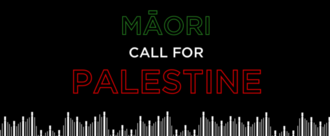
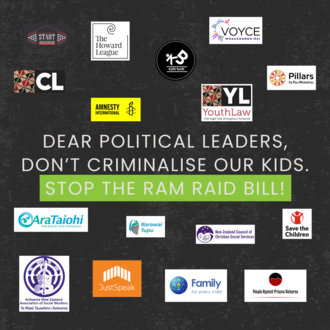



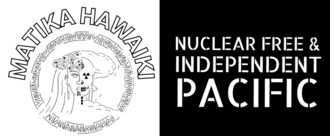

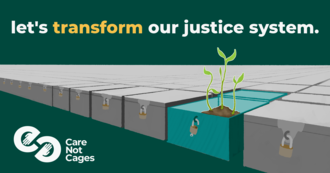
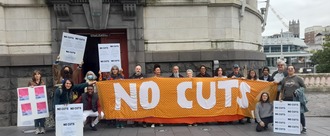
.png)
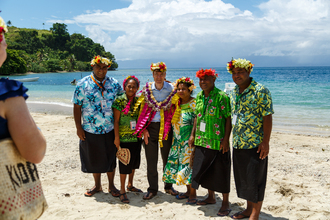%20(1).jpg)